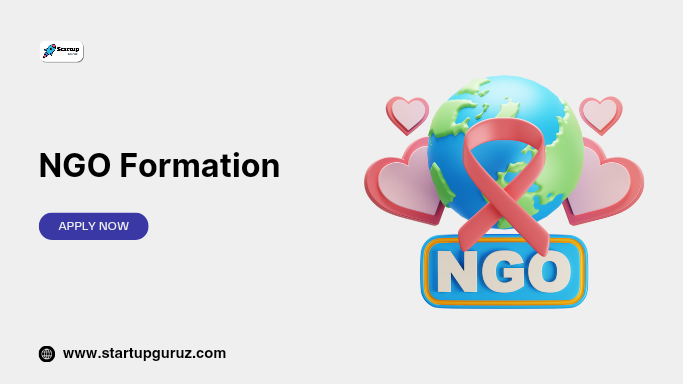NGO Form
NGO Form: A Comprehensive Guide
Are you passionate about social change? Establishing an NGO could be your pathway to making a positive impact on society. Learn all about the process, FAQs, and more here.

Introduction to NGO Form
NGOs, or Non-Governmental Organizations, play a crucial role in addressing various social, economic, and environmental issues globally. These organizations are driven by a mission to contribute to the betterment of society, often focusing on areas such as education, healthcare, human rights, environmental conservation, and community development. If you’re considering starting an NGO, it’s essential to understand the process involved in setting it up, the legal requirements, and the responsibilities that come with it. This comprehensive guide will walk you through the steps of forming an NGO, commonly asked questions, and key considerations to keep in mind.
1. Understanding NGO Formation
Starting an NGO involves several steps, including conceptualizing the organization’s mission and objectives, registering it legally, and establishing operational procedures. Here’s a detailed overview of the process:
- Mission and Vision: Begin by defining the mission and vision of your NGO. What cause or issue will your organization address? What are your long-term goals and objectives?
- Legal Structure: Choose a legal structure for your NGO. Common options include trusts, societies, and Section 8 companies (non-profit companies) in India. Each structure has its own set of regulations and requirements.
- Name Registration: Select a unique and meaningful name for your NGO. Check for its availability and register it with the appropriate authorities to ensure legal protection.
- Board of Directors: Form a board of directors or governing body comprising individuals committed to your organization’s cause. Their roles may include strategic decision-making, governance, and oversight.
- Registration Process: Follow the registration process mandated by the laws of your country or region. This typically involves submitting an application form, along with supporting documents, to the relevant government department or regulatory body.
- Compliance Requirements: Familiarize yourself with the legal and regulatory requirements for NGOs in your jurisdiction. This may include tax-exempt status, annual reporting, and adherence to specific laws governing non-profit organizations.
- Operational Planning: Develop a comprehensive operational plan outlining the activities, programs, and initiatives your NGO will undertake to achieve its objectives. Consider factors such as funding sources, staffing, and resource allocation.
- Fundraising and Sustainability: Explore various fundraising avenues to secure financial support for your NGO’s operations. Develop strategies for long-term sustainability, such as donor engagement, grants, and partnerships.
- Networking and Collaboration: Build partnerships and collaborations with other NGOs, government agencies, businesses, and community organizations to amplify your impact and reach.
- Monitoring and Evaluation: Implement mechanisms for monitoring and evaluating your NGO’s performance and impact. Regularly assess the effectiveness of your programs and initiatives and make adjustments as needed.
2. Frequently Asked Questions (FAQs)
- What is an NGO, and what does it do?
- An NGO, or Non-Governmental Organization, is a non-profit entity that operates independently of government control. NGOs work towards addressing various social, environmental, and humanitarian issues.
- How do I register an NGO?
- The registration process varies by country. In India, NGOs can be registered as trusts, societies, or Section 8 companies. Consult legal experts or government websites for specific registration requirements.
- What are the benefits of starting an NGO?
- Starting an NGO allows you to contribute to social causes you’re passionate about, make a positive impact on communities, and advocate for change on a local, national, or global scale.
- Do I need funding to start an NGO?
- While funding is essential for sustaining an NGO’s operations, you can start with minimal resources by leveraging volunteer support, in-kind donations, and grassroots fundraising efforts.
- What are the responsibilities of NGO founders?
- NGO founders are responsible for defining the organization’s mission and vision, establishing governance structures, complying with legal requirements, securing funding, and overseeing day-to-day operations.
- How can I ensure transparency and accountability in my NGO?
- Transparency and accountability are critical for maintaining trust with stakeholders. Implement robust financial management practices, conduct regular audits, and communicate openly with donors and beneficiaries.
- Can NGOs work internationally?
- Yes, many NGOs operate at the international level, collaborating with partners and stakeholders across borders to address global challenges such as poverty, climate change, and human rights violations.
- What are the challenges faced by NGOs?
- Common challenges include limited funding, bureaucratic hurdles, competition for resources, donor dependence, and ensuring sustainability amid changing socio-political landscapes.
- How do I measure the impact of my NGO’s work?
- Impact measurement involves assessing the outcomes and effectiveness of your programs and initiatives in relation to your organization’s goals. This may include tracking key performance indicators, conducting surveys, and gathering feedback from beneficiaries.
- Can individuals volunteer for NGOs?
- Yes, NGOs rely on volunteers to support their activities and programs. Individuals can contribute their time, skills, and expertise to various causes, ranging from community development projects to advocacy campaigns.
Conclusion
Starting an NGO requires careful planning, dedication, and a deep commitment to making a difference in the world. By understanding the process of NGO formation, complying with legal requirements, and adopting best practices in governance and operations, you can establish a successful organization that positively impacts society and brings about meaningful change. If you’re passionate about addressing social or environmental issues, don’t hesitate to embark on the rewarding journey of starting an NGO today.